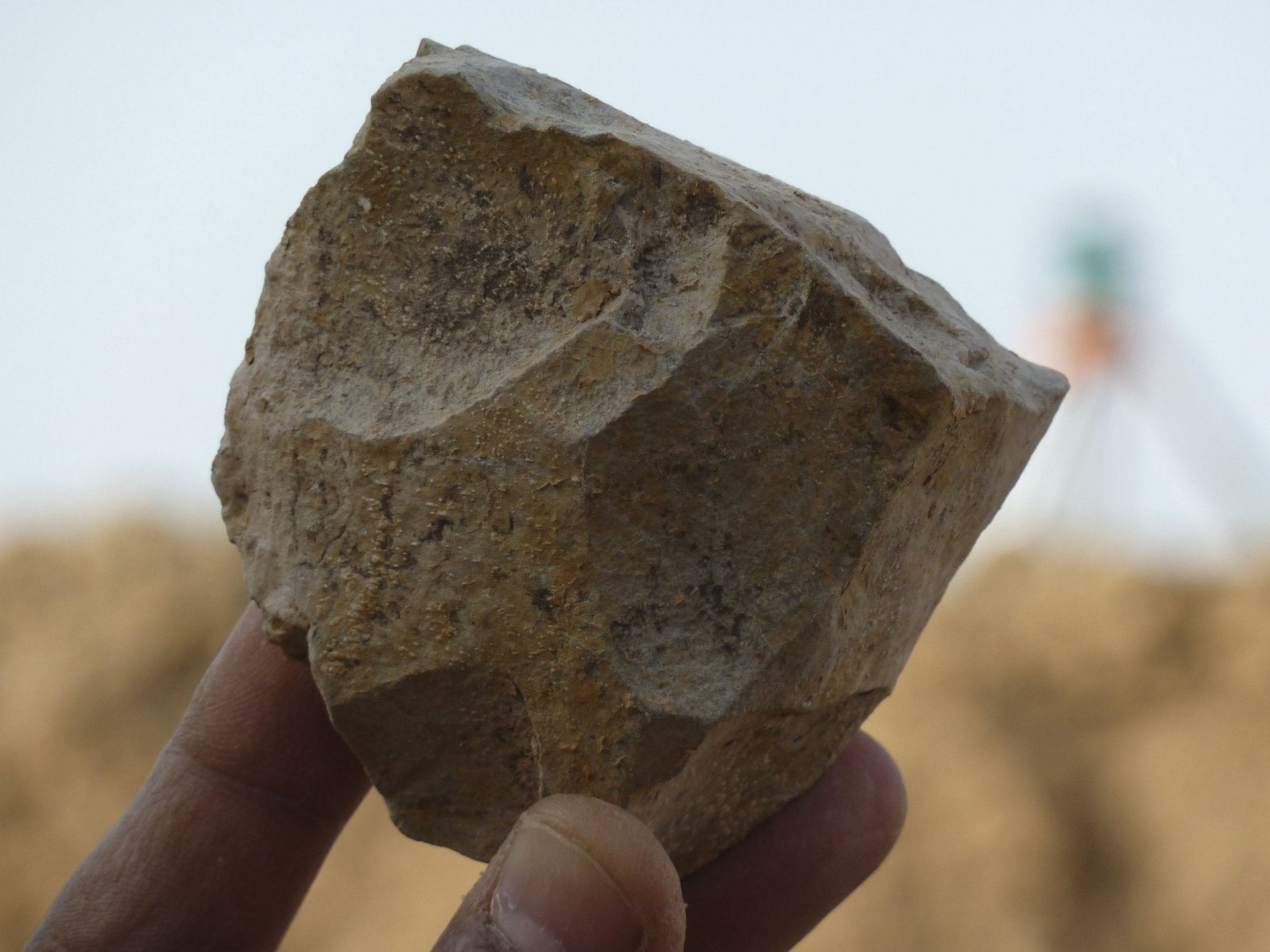Ancient tools discovery in Algeria forces scientists to rethink human evolution
'The cradle of humankind was not restricted to east Africa - rather it was the entire African continent'

Your support helps us to tell the story
From reproductive rights to climate change to Big Tech, The Independent is on the ground when the story is developing. Whether it's investigating the financials of Elon Musk's pro-Trump PAC or producing our latest documentary, 'The A Word', which shines a light on the American women fighting for reproductive rights, we know how important it is to parse out the facts from the messaging.
At such a critical moment in US history, we need reporters on the ground. Your donation allows us to keep sending journalists to speak to both sides of the story.
The Independent is trusted by Americans across the entire political spectrum. And unlike many other quality news outlets, we choose not to lock Americans out of our reporting and analysis with paywalls. We believe quality journalism should be available to everyone, paid for by those who can afford it.
Your support makes all the difference.Scientists believe they might have to rewrite parts of human evolutionary history after new archaeological evidence suggested early people’s ancestors first arrived in north Africa about 600,000 years earlier than previously thought.
The discovery of a collection of ancient stone tools in Algeria has raised questions over east Africa’s title as “the cradle of humanity”.
The findings point to evidence of human life in Algeria, north Africa, 2.4 million years ago, according to the research published in the journal Science.
Until now, the oldest known tools from the region were 1.8 million years old.
Archaeologists say it means that either the first humans expanded rapidly from their east African homeland or humans emerged simultaneously across a vast region of the continent.
Earlier this year scientists discovered an ancient species of human with a brain no larger than an orange but with high intelligence, leading to suggestions that long-held beliefs about the evolution of our brains were fundamentally wrong and much of Africa’s archaeology should be reconsidered.
The excavations at the Ain Boucherit site in north-eastern Algeria have been going on since 1992 to discover more about the earliest representative of the Homo genus.
The tools, said to be typical of the Oldowan stone tools already known of in east Africa, were unearthed near dozens of fossilised animal bones, with cut marks on them, from early crocodiles, elephants and hippopotamuses, and archaeologists think this could be evidence of meat-eating.
The discovery comes as scientists have concluded that human evolution – a gradual change to the DNA of a species over many generations – is still happening, and possibly faster than ever.
The report in Science said of the archaeological find: “East Africa is widely considered to be the birthplace of stone tool use by our ancient hominid ancestors – the earliest examples of which date as far back as about 2.6 million years ago.”
One hypothesis is that our early ancestors quickly carried stone tools with them out of east Africa and into other regions. Another is a “multiple-origin scenario” in which early hominids made and used tools in both east and north Africa.
Prof Mohamed Sahnouni at the National Research Centre on Human Evolution in Spain, who led the research, said: “The evidence from Algeria shows that the cradle of humankind was not restricted to only east Africa. Rather the entire African continent was the cradle of humankind.”
The discoveries were made in two layers, one dating to 2.4 million years ago and the second dating to 1.9 million years old.
Successful earlier hominins were beginning to disappear as early species of Homo were taking over, and Prof Sahnouni suspects the tools were made by one of these.
“This new discovery modifies our understanding of the timing and diffusion of the Oldowan stone tool technology throughout Africa and outside the continent,” said Prof Sahnouni and colleague .
But anthropologist Jessica Thompson, of Emory University in Atlanta, Georgia, who wasn’t involved in the study, was not convinced that the animal bones are covered in cut marks. She said researchers struggled to identify unambiguous cut marks on ancient bones because natural processes might scratch the surface of bones in a similar way.
Additional reporting by agencies
Join our commenting forum
Join thought-provoking conversations, follow other Independent readers and see their replies
Comments